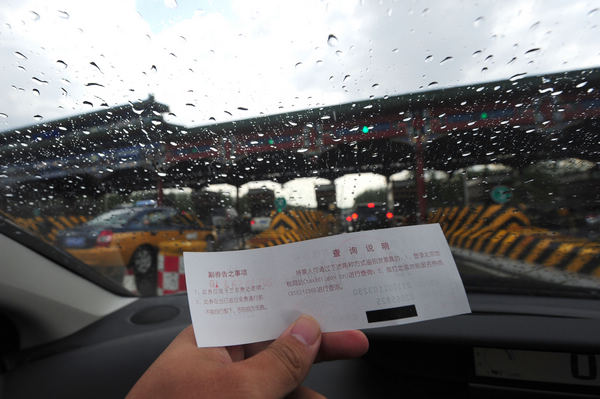Society
Tolls on road take a rising toll on drivers
By Gao Changxin (China Daily)
Updated: 2011-06-15 08:10
 |
Large Medium Small |
|
|
'Abnormal' tally
Already high, the road fees are made higher by the numerous illegal toll stations on the nation's roads.
Chen Lin, a 16-year truck driver in Shanghai who travels the country, said toll stations that are "apparently illegal" are widespread around the nation, especially in rural areas. He said some stations charge differently for the same distance on different occasions, and on some roads toll stations have been set up virtually "right next to each other".
"I have heard that in some small cities, if you speak the local dialect to the toll station staff, you get a lower rate," Chen said. "Typically drivers don't want to argue with them, because we are on the roads and don't want trouble."
In 2008, the National Audit Office said in a report that illegal tolls and provincial tolls out of line with national permits and regulations amounted to $3.1 billion a year. That comprises $2 billion from 158 illegal toll points and $1.1 billion from amounts that exceeded toll regulations.
The audit office criticized the management of toll roads as loose, including exempting officials and government departments or cutting their fees, transferring operating rights to private enterprises without approval and using toll revenues for purposes other than repayment of road construction loans.
The Ministry of Transport announced on Tuesday that starting Monday, various government agencies will go after unauthorized highway checkpoints and illegal tolls. A joint notice by five agencies promised harsh punishment to violators of toll road laws and regulations.
Zhu Jian, a professor in the School of Transportation Engineers at Tongji University, said it is "abnormal" for drivers in China to pay this much for the roads they travel. Roads are public goods, he said, and the government should provide them freely.
"At the root of the problem is the financing pattern behind the nation's road construction, where the regional governments disproportionately shoulder the financing burden," Zhu said.
